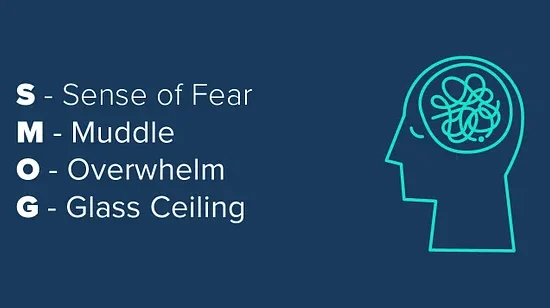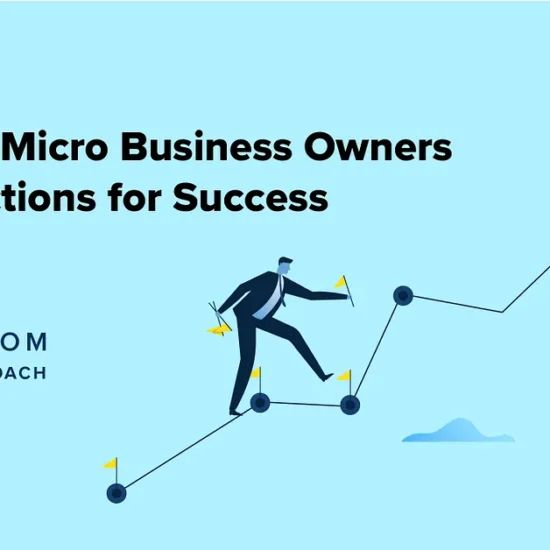The vast ocean of success is filled with swimmers of two kinds: those who drown in excuses and those who swim vigorously towards solutions. The difference between these two fates lies in the mindset.
It’s an understanding that while excuses anchor you to failure, a solution-oriented mindset propels you forward.
As we delve deeper, let’s explore three key learnings that help business owners shift their mindset from excuse-laden to solution-focused, along with actionables to implement this transformation in their daily mindset.
Key 1: The Power of Accountability
The “poor” mindset finds solace in excuses, creating a narrative that external factors are to blame for one’s stagnation. A “poor” mindset is characterised by a focus on obstacles rather than opportunities. When confronted with a problem, this mindset leads to a default reaction of making excuses. It’s an attitude that sees difficulty in every opportunity and often indulges in self-sabotage.
Individuals or organisations with this mindset may blame external factors for their problems, avoid taking responsibility, and thus remain stagnant. This approach creates a culture of victimhood and learned helplessness, stifling innovation and growth.
Excuses are the nails used to build a house of failure.
In contrast, a “rich” mindset is solution-oriented. It finds its expression in people who see opportunities in every difficulty. Instead of being paralysed by fear or uncertainty, they creatively problem-solve.
The “rich” mindset understands the power of accountability. Owning up to mistakes and shortcomings empowers. It’s not about merely taking ownership but learning from setbacks and pivoting strategies as necessary.
In a business, a “rich” mindset fosters a culture of innovation, adaptability, and continuous improvement. It’s a perspective that seeks answers and takes decisive action to overcome hurdles, not look for a single-shot perfectionist response.
A solution mindset is proactive and resilient; it changes the narrative from blame to ownership.
Actionable: Perform a Daily Accountability Check
At the end of each day, ask yourself what went well and where you fell short. For every shortcoming, identify a concrete step you could take to improve the situation next time. This practice cultivates a habit of self-reflection and proactive improvement.
Key 2: Embracing Discomfort as a Catalyst for Growth
In the realms of comfort, the poor mind stagnates, making excuses for inaction. It consistently procrastinates decisions and the engagement activities to improve.
Conversely, the rich mind thrives on the discomfort of challenges and changes. It understands that growth is often uncomfortable, but it is also enriching.
Comfort is the enemy of achievement.
Actionable: Setup Weekly or Monthly Challenges
Identifying areas that lack process and performance issues, a lack of integrity in delivery timelines or customer experience, or losing customers due to poor sales follow-ups. Make it a habit to do something that pushes you out of your comfort zone regularly.
As a leader of your organisation, confront and embrace the discomfort, work out implementing systems and processes, and transform this area into growth. Leading by change and not by power.
Key 3: Solution-Oriented Thinking
A poor mind focuses on problems, draining its energy. In contrast, a rich mind focuses on solutions, channelling its energy towards constructive outcomes. Solution-oriented thinking is about seeing every problem as an opportunity to learn and innovate.
Where focus goes, energy flows.
Actionable: Adopt the ‘There is a Way’ Philosophy
Whenever you encounter a problem, instead of saying, “It isn’t working,” ask, “How can I make it work?” How to involve teams in creating solutions that work at the ground level. This simple thought process significantly shifts your mindset and opens up new avenues for creative problem-solving attitudes within yourself and in teams.
In Conclusion
Internalising these key learnings and taking deliberate actions, we can shift our mindset towards one that seeks solutions and swims in the sea of success.
The distinction between a poor and a rich mind does not lie in their financial wealth but in their mental approach to life’s challenges.
It’s not merely about being optimistic but about being pragmatic and action-oriented. It’s about refusing to let the weight of excuses submerge your potential and, instead, choosing to navigate the challenging waves with a compass of solutions.
Mindset Transformation in Action
- Accountability: End each day with self-reflection and plugging the gap in a document up for improvement.
- Discomfort: Regularly challenge yourself to leave your comfort zone.
- Solutions: Replace “This isn’t” with “How can I make it work?” to foster creative problem-solving.



